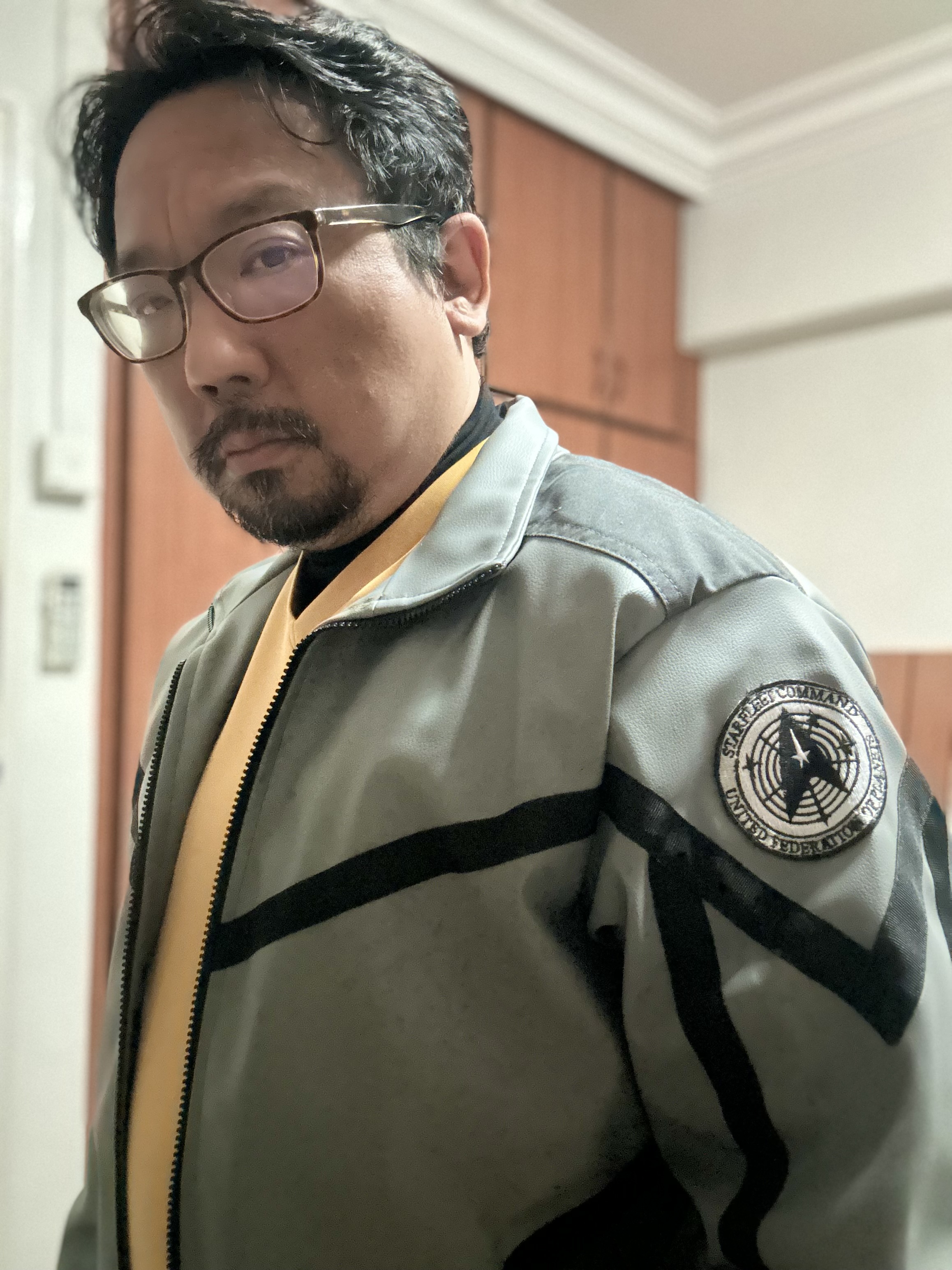Trill has a surface area of 500 million km^2, which is similar to Earth (501 million km^2). Other data include an orbital distance of 1.215 AU, a year of 483 sols, a surface temperature of 297 Kelvin (23.85 C) and 1 satellite.
Trill spots are as unique to the individual as human fingerprints or Saurian dorsal ridges, and Zora links them to one Jinaal Bix, who lived 800 years before. Adira says it is unusual, but not unheard of, for a symbiont to live to 800 years.
Rayner has assumed the rank of Commander as the new XO. It’s not clear if this was a condition of his staying on in Starfleet or if it is a situation like that of Will Decker in TMP, where he was Captain rank but was temporarily reduced in grade for the purpose of the mission once Kirk assumed command. On the other hand, by the time of the Enterprise-A, this ship had at least two or three Captains on board (Kirk, Spock and there’s some debate about Scotty), and Spock was referred to as Captain, not Commander.
Reno pronounces raktajinos as “raktachinos”- which is actually not entirely wrong. Raktajino is actually a portmanteau word from both Klingon and Italian. Technically, Klingon coffee is qa’vIn, derived from “caffeine” (coffee is not native to the Empire, and was probably first taken as plunder from human vessels or colonies). Adding liquor (HIq) to it produces a beverage known as ra’taj, which also gained popularity outside the Empire. The “export” version is non-alcoholic but contains a nutlike flavoring, being called in Federation Standard raktaj. Then a variant of raktaj with cream became popular, which became combined with “cappuccino” to become raktajino. So while the preferred pronunciation is jino, with a soft “j”, saying it as chino actually pays homage to the second word that makes up the portmanteau (Klingon for the Galactic Traveler by Marc Okrand).
Guardian Xi was last seen at Federation HQ in DIS: “…But to Connect”, when Gray Tal decided to join the Guardians. The Caves of Mak’ala house the breeding pools of the symbionts, and we last visited them in DIS: “Forget Me Not”. The milky liquid in the pools acts as a medium for electrical impulses that allow the symbionts to communicate with each other.
The zhian’tara ritual was first seen in DS9: “Facets”, where the memories of a previous host are temporarily incorporated into a volunteer to allow face-to-face communication with the current host. Done under the supervision of a Guardian, a variation of this was used to transfer Grey’s consciousness and memories into a synth body (DIS: “Choose to Live”).
The favinit is a Vulcan plant, first mentioned in VOY: “Alliances”, where Tuvok created a hybrid of it and a South American orchid.
The year is finally stated as 3191, although that does not match with the Stardate given last week, which by TNG reckoning only makes it 3189. More evidence that stardates work differently now, and I do wish the production team would stop being coy and let us know how.
So, just to get our chronological bearings, Michael leaves 2258 at the end of Season 2, lands in 3188 at the start of Season 3, spends a year with Book before Discovery lands in 3189, and the rest of Season 3 takes place. A few months pass between Season 3 and 4, taking us into 3190, and at least six months between Season 4 and 5, bringing us to 3191.
The Vulcan Purists were first mentioned in DIS: “Unification III”, where we met their representative V’Kir. In DIS: “All is Possible”, the Purists tried to force an opt-out clause in the agreement for Ni’Var rejoining the Federation, but a compromise was brokered by Saru and Burnham for an independent review committee instead.
Cabrodine, an explosive material, was first mentioned in DS9: “In the Hands of the Prophets”, where the station schoolhouse was destroyed by a cabrodine-infernite bomb.
Jinaal says that the Dominion War was raging when the Progenitor technology was found, so it’s not a literal 800 years (which would make it 2391). The Dominion War officially lasted from 2373-2375.
Dalaka was a rogue planet, one that had broken out of orbit and was traveling through interstellar space untethered to a star system, first encountered in 2151 by the NX-01 Enterprise in ENT: “Rogue Planet”. Bore worms were said to enter a person’s ear to lay their eggs there.
Tongo was a Ferengi game played in Quark’s on DS9 in the 24th Century, so at some point either the game migrated to Bajor or Asha spent some time with Ferengi who played. She says her nicknames were “Full Monopoly” and “Bluff Master”. Two of the winning hands in Tongo are “Full Consortium” and “Total Monopoly” (DS9: “Change of Heart”).
Nilsson was played by Sara Mitich, the original actress for Airiam in Season 1, who then changed roles for Seasons 2-4. This dialogue establishes that she left to join the Voyager-J, the platform for testing the pathway drive, and that the tribble seen in Discovery’s corridors is a pet.
Sehlats are large bear-like beasts native to Vulcan (TOS: “Journey to Babel”), and domesticated varieties were treated as pets. Spock had a pet sehlat named I-Chaya in his youth, who died defending him from a le-matya (TAS: “Yesteryear”).
The bar on Discovery is given a name, “Red’s”.
The Tzenkethi were in conflict with the Federation sometime in the mid-24th Century (DS9: “Paradise Lost”), but although mentioned in that episode and extensively in DS9: “The Adversary”, we have never seen one on screen. Different versions have appeared in both Star Trek Online, the Litverse novels and in the current Star Trek comic by IDW.
At the end, we see a disguised Moll plant some kind of device on Adira’s sleeve.

